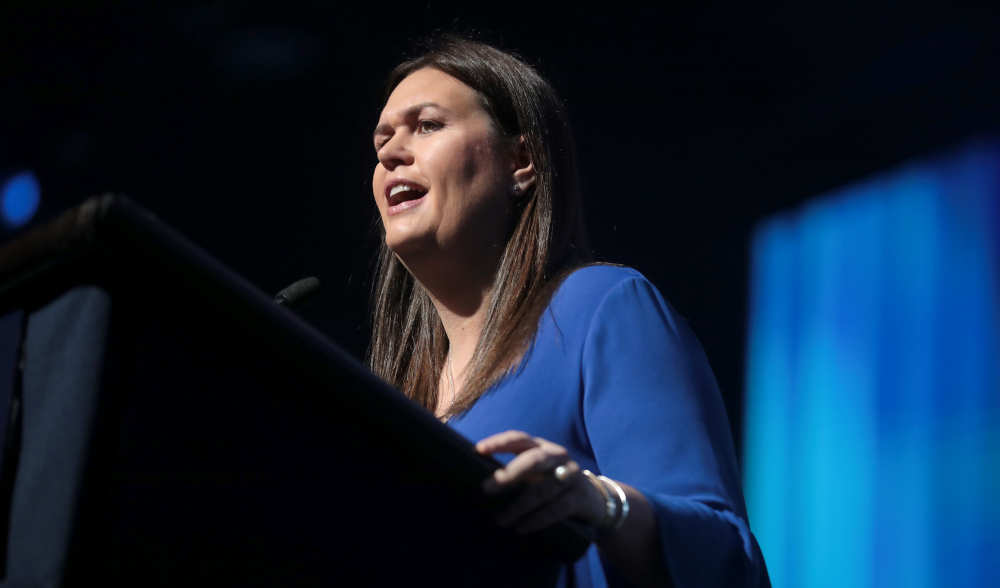A ban on delta-8 THC appears likely in Arkansas while restrictions on the psychoactive hemp-derived substance have been averted for now in Georgia.
The Arkansas Senate voted last week to send Gov. Sarah Huckabee Sanders a bill that would outlaw the production and sale of all intoxicating substances derived from industrial hemp, approving the measure on a 30-1 vote after the Senate accepted two amendments made by the state’s House of Representatives.
The bill, which bans all synthetic THC, is aimed at protecting children who are targets of marketing for such products, said Sen. Tyler Dees, a Republican from Siloam Springs who wrote the measure. Delta-8, delta-9 and delta-10 THC derived from hemp would be classified as Schedule VI controlled substances under state law, with the same designation as recreational marijuana.
Industrial use protected
Delta-8 THC is present in all cannabis, but only in small amounts. However, producers have been turning out high-concentration delta-8 products by putting hemp-derived CBD through a synthetic process. The products are not regulated by the federal government and fall into a gray area, which has led to their proliferation across the U.S.
If Huckabee Sanders signs the bill, a ban on delta-8 THC would go into effect immediately for those under 21, and on Aug. 1, 2023 for those 21 or older.
According to language in the bill, the cultivation of hemp for industrial use would remain protected under the “Arkansas Industrial Hemp Protection Act.”
Georgia bill shelved
In Georgia, a bill aimed at regulating hemp products fell short after lawmakers tried to insert age restrictions on delta-8 in the final days of this year’s legislative session.
That proposed law would have limited sales of delta-8 products to those over 21, set testing requirements to detect contaminants, and establish marketing rules. The proposal remains alive for 2024, the second year of Georgia’s two-year legislative cycle.
‘No guardrails’
“The General Assembly said that CBD products should be available to consumers, and we just don’t have the guardrails,” said the bill’s sponsor, Rep. Clay Pirkle, a Republican from Ashburn. “I really want significant guardrails in place regarding testing and making sure that the product is as advertised so the consumer can make a choice.”
A Senate bill that would have banned delta-8 entirely was previously sidelined. That measure would have prohibited the sale of hemp products containing delta-8, delta-9 or any other form of THC but would not affect the market for CBD.
Safety concerns
Critics of delta-8 said vendors in other states where delta-8 is now allowed often send their products into Georgia, products which could be contaminated with heavy metals or pesticides because they go untested for safety.
The Georgia Poison Center reported 191 calls related to synthetic THC since 2018, with 14 last year. Of those, 53 were in response to people 17 and younger, and 130 were for adults.
“I absolutely do not want the psychoactive stuff being available in Georgia, these things that cause harm to consumers,” Pirkle said. “I can’t think anyone would be in favor of that.”
Ban is spreading
A growing number of states have banned delta-8 THC products. Federal lawmakers failed to account for such synthetic forms of CBD-based THC when they legalized hemp through the 2018 Farm Bill.
Producers have argued that because the 2018 Farm Bill made hemp and its downstream products legal, delta-8 is therefore also legal. A U.S. appeals court last year upheld that view under a strict interpretation of the 2018 Farm Bill, but noted it was most likely an oversight by lawmakers, who can correct that situation in the 2023 Farm Bill or with other legislation.
Opponents of delta-8 suggest the 2018 Farm Bill never intended hemp to be used to make psychoactive compounds and that nefarious players are exploiting the bill’s language to sell highly potent synthetic THC products that are widely available at retail.
The U.S. Food & Drug Administration has expressed alarm over delta-8 THC products, calling their rapid growth “extraordinarily concerning.” The U.S. Drug Enforcement Administration asserted earlier this year that delta-8 and other forms of hemp-based synthetic THC do not meet the federal definition of hemp and are therefore controlled substances.

